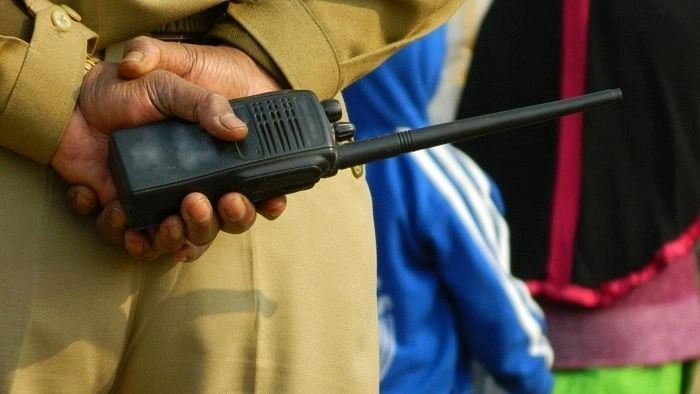
Representative image of police.
Credit: iStock Photo
New Delhi: More than 1,500 cases were registered under IPC section 153A that penalises promoting enmity between different groups, including offences of hate speech, across India in 2022, a 31.25 per cent increase from 2021 but a 15.57 per cent decline from 2020, according to the NCRB.
Last year, the maximum of these 1,523 cases were lodged in Uttar Pradesh (217) followed by Rajasthan (191), Maharashtra (178), Tamil Nadu (146), Telangana (119), Andhra Pradesh (109), and Madhya Pradesh (108), the data showed.
The National Crime Records Bureau (NCRB), which functions under the Union Ministry of Home Affairs, is tasked with collection and analysis of crime data from all states and union territories, the figures of which are published annually in its report.
In 2022, nine states registered over 100 cases under IPC sections 153A, while in 2021 there were just two states - Andhra Pradesh and Uttar Pradesh - with such offences in three-digits. Both Andhra Pradesh and Uttar Pradesh had reported 108 IPC 153A offences in 2021, according to the data.
In 2020, there were seven states with over 100 such cases each - Andhra Pradesh, Assam, Karnataka, Rajasthan, Tamil Nadu, Telangana and Uttar Pradesh. The maximum 303 cases were reported in Tamil Nadu in 2020, the NCRB data from corresponding year showed.
In 2022, the number of such offences nearly-tripled to 108 in Madhya Pradesh from 38 in 2021. The state had recorded 73 such cases in 2020, official figures showed.
In some states the figures increased to more than double in 2022 from 2021, like Uttar Pradesh (217 and 108), Maharashtra (178 and 75), Rajasthan (191 and 83), Gujarat (40 and 11).
Assam, which had reported 147 offences under IPC 153A in 2020, registered 75 cases in 2021 and last year the figure came down to 44, according to the NCRB report.
National capital Delhi recorded 26 cases in 2022, 17 in 2021 and 36 in 2020. Jammu and Kashmir showed 16 such offences in 2022, 28 in 2021 and 22 in 2020, the official data revealed.
In a note of caution about the annual report, the NCRB said the primary presumption that the upward swing in police data indicates an increase in crime and thus a reflection of the ineffectiveness of the police is fallacious.
''Rise in crime' and 'increase in registration of crime by police' are clearly two different things, a fact which requires better understanding. Thus an oft-repeated expectation from certain quarters that an effective police administration will be able to keep the crime figures low is misplaced," it stated.
Increase in crime numbers in a state police data may in fact be on account of certain citizen-centric police initiatives, like launching of e-FIR facility or women helpdesks,' it said.
"The increase or decrease in crime numbers, however, does call for a professional investigation of underlying factors pertaining to the local communities to suitably address the pertinent issues," it added.